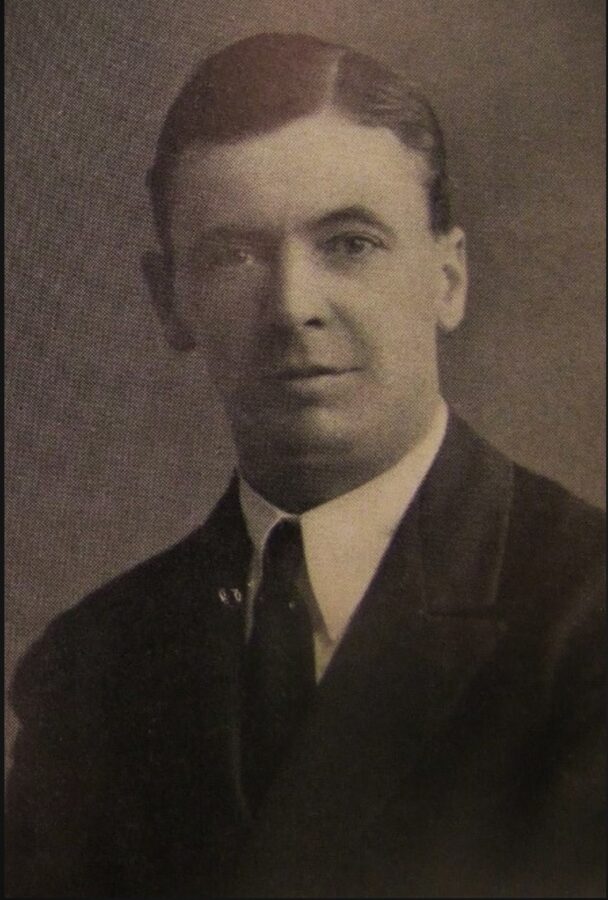
Kieran’s Our City, Our Town Article,
Cork Independent, 2 May 2024
Making an Irish Free State City – Cork Corporation is Dissolved
On 31 October 1924, a deliberation on the performance of the duties of Cork Corporation was delivered to Cork Corporation. Following on from the nine-day inquiry by Mr Nicholas O’Dwyer, Chief Engineering Inspector Local Government Department, the result was dissolution.
The Cork Examiner describes that at a meeting of the Committee of the whole Council was to be held at 12noon in the Courthouse, and as the Town Clerk was on his way to it he was met by Mr Philip Monahan, who handed him the order of the Minister, which at its heart noted that “the duties of the Council of the County Borough of Cork are not being duly and effectually discharged by them”. When the Town Clerk arrived in the Bar room, where members of the Council had assembled for the meeting, he informed them that “a moment ago a sealed order, dissolving the Council”, was handed to him by the Commissioner appointed by the Local Government Department.
The property and the several powers and duties of the Council of the County Borough of Cork were to be transferred to Philip Monahan of Drogheda, in County Louth, whom was appointed to perform the duties of the Council. He was to be known and referred to as the Commissioner of the County Borough of Cork. Philip was the Mayor of Drogheda. When the Kerry County Council was dissolved he took over its duties, and had since the dissolution of the West Cork Board of Public Assistance, been acting as Commissioner in their stead as well.
On 7 November 1924 at a special meeting of the members of the Cork Corporation held in the City Courthouse, the Lord Mayor presided and a statement was unanimously adopted and directed to be handed to the press.
The Lord Mayor and members of the Cork Corporation desired to note their strong public protest against the recent order of the Local Government Board dissolving the Borough Council of Cork as being entirely “undeserved and uncalled for and being an insult and an indignity put upon this ancient Municipality”.
The Lord Mayor wished to highlight that at the inquiry, no case of corruption was preferred or proved, no case of extravagant expenditure was proved, no ease of wilful neglect of public business proved, and “no charge was made of neglect, or refusal, to comply with, official suggestions or orders, in fact no suggestion or order of the Local Government Board was ever disregarded or disobeyed”.
The Lord Mayor continued that Members of the Corporation carried on the public business and provided for the essential civic services efficiently and regularly during times of great difficulty and danger and they protested against, and resented, “as being entirely undeserved and unfair the order of the Local Government Board dissolving the Corporation”.
The Lord Mayor highlighted that for several years past the Corporation had been warned and directed not to undertake any works, which would entail the spending of sums of money, except for the most urgent purposes; he noted: “This tied the hands of the Corporation, and prevented them from carrying out various improvements”.
The Lord Mayor wished topoint out that three very important matters, closely connected with the welfare of the city in the future, which had been and were under careful consideration, “with a view to safeguarding the interests of the citizens in the best possible manner”.
Firstly, the appointment of a new City Engineer was in train. Secondly plans and specifications for the erection of the new City Hall had been prepared and passed, and advertisements were widely issued inviting tenders for the erection of the new Municipal Buildings.
Thirdly tenders had been received and were under consideration for some time for an improved water supply, by mechanical sand filtration to supply six million gallons of water per day for the citizens. The cost was about £40,000. That very important work had been delayed in consequence of the continued illness of Mr Delany, the late City Engineer. After inspection it was found that over three miles of old corroded water mains were required to be replaced by new pipes, without delay, as they contaminated the water supply.
The members of the Corporation considered it a retrograde movement that matters of the importance and magnitude of these should be dealt with without the voice of the ratepayers being heard through their elected representatives. They noted: “We are of the opinion that the proper course is not being adopted by leaving these matters in the hands of one gentleman – who is a stranger to the city – and cannot be aware of the requirements which may arise. It certainly is not Government by the people, which is so properly advocated nowadays”.
On 11 November Philip Monahan took up his duties. In the course of an interview with a representative of the Cork Examiner, Mr Monahan observed that for the ensuing weeks he preferred to be a listener rather than a speaker; “My knowledge of Cork problems is superficial, and it will be some time before 1 can discuss them with advantage to your readers. On the question of the dissolution of the Corporation, I can only say that no ono regrets the necessity for it more than the Minister of Local Government. From my reading of the Inspector’s report on his inquiry I feel that in normal times such drastic action might not have been taken. Times, however, are not normal in Cork. The Black and Tan burnings, the depressing effect on trade of the prolonged strike, the loss of trade occasioned by the destruction of the Mallow bridge, have caused a serious shortage of money in Cork homes”.
Caption:
1251a. Philip Monahan, Commissioner of the County Borough of Cork (picture: Cork City Library).